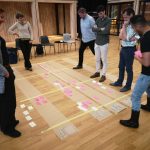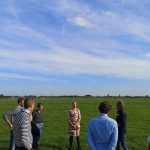Living Lab Alblasserwaard
Partners:
Naturalis Biodiversity Center, Wageningen Environmental Research (WENR), Aeres Hogeschool, Provincie Zuid-Holland, Kaasfabriek de Graafstroom, Zuivelcoöperatie Deltamilk, Agrarisch natuur- en landschapsbeheer Den Hâneker, Staatsbosbeheer, Collectief Alblasserwaard-Vijfheerenland, Zuid-Hollands Landschap, Waterschap Rivierenland, Natuur- en Vogelwacht Alblasserwaard, Rabobank, EIS Kenniscentrum Insecten, Landschappen.NL, LTO Nederland, gemeente Molenlanden, and BoerenNatuur.
Date:
2021 – 2026
The Project
The Living Lab Alblasserwaard is one of three living labs set up and funded by the National Science Agenda (NWA) thematic program ‘Living labs for restoring biodiversity in the rural area’. This is a research program in support of the Delta Plan for Biodiversity Restoration and aims to gain insight into the possibilities for biodiversity restoration in practice. With a focus on the Alblasserwaard, the living lab investigates which measures and practices strengthen biodiversity, how this can become part of business models and how stakeholders (farmers, governments, NGOs) can be mobilized to strengthen biodiversity. The interaction between ecological, economic and social aspects is a central element within the living lab.
EGDS activities
The project has an integral and co-creative approach with explicit involvement of societal stakeholders. The Erasmus Governance Design Studio (EGDS) works on a co-design trajectory for the living lab, organising the interaction and collaboration between different stakeholders and collectively exploring and designing interventions for biodiversity restoration. In addition, the EGDS conducts research to gain a better understanding of the complexities in the system in which measures to strengthen biodiversity are implemented. We do this by using a systemic approach to study measures to restore biodiversity in co-creation with a wide range of stakeholders (Participatory System Mapping).




